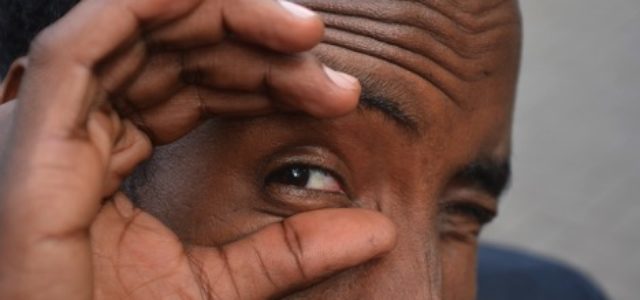Oscar Gakuo Mwangi
In this article, I argue that statelessness in the Kenyan context needs to be seen as simultaneously a psychological and a physical condition determined by spatial-political boundaries rather than legal ones. This challenges the traditional approach to statelessness which sees it as primarily a legal matter of citizenship. In particular, I use the example of Somalis experiencing statelessness in Kenya in order to consider statelessness as a result of, and contributing to, ungoverned spaces, I also examine the implications of this for understandings of security. Kenya is a unique case study because of its proximity to Somalia, which is often referred to as a ‘collapsed state’.
Spatial-political understandings of statelessness
The importance of analyzing statelessness from a spatial-political approach rather than a legal one, is that it contributes to a much broader understanding of statelessness in the context of the relationship among politics, security and physical space. According to this approach, statelessness is determined by the interplay of politics and security in the space where one lives not by citizenship.
The space referred to in this case is ungoverned. This is a physical space or territory within a political entity, namely the state, but where the state is virtually absent. Violent armed non-state actors thrive in such spaces because of the absence of law and order. To this extent individuals, groups of individuals, norms, and so forth, in such spaces are not defined and determined by formal-legal institutions but rather by the intersection between politics and security.
Somalis in Kenya
Kenya’s proximity to Somalia makes it unique as a case study in the relationship among statelessness, ungoverned spaces and security. Somalia is often described as a collapsed state characterized by protracted conflict. The north-eastern region of Kenya, which borders Somalia, and is the focus here, covers approximately 22 percent of the country’s geographical territory. It contains slightly over 5 percent of the country’s population and is dominated by ethnic Somalis. Kenyan Somalis and Somali refugees residing in Kenya’s ungoverned spaces are, I argue, stateless persons.
Kenya’s ungoverned spaces cover over 80 percent of the country’s geographical territory. These regions have been economically and politically marginalized since the country’s independence in 1963 and the state is virtually absent within them. The north-eastern region is the most economically and politically marginalized in Kenya. Kenya’s Dadaab refugee camp, the largest refugee camp complex in the world, is found in this region. The majority of the refugees in the complex are Somalis.
Security, perceptions of threat, and statelessness
The region experiences a high number of terrorist incidents especially from the Somali-based Harakat Al-Shabaab Al Mujaheddin, commonly known as Al-Shabaab, a transnational terrorist group. Al-Shabaab, a predominantly a Somali organisation, aims to create an Islamic Caliphate in the region. It conducts most of its attacks in Kenya’s ungoverned spaces that are occupied by Somalis.
The structural and physical violence characteristic of ungoverned spaces determines the emergence, strategies and success of individual activities and collective actions in these spaces and opens up new and existing channels of political aspiration. In an unstable environment characterized by marginalization and repression, those living in these spaces, which are primarily populated by Somalis, are able to participate in the activities of Al-Shabaab with relative ease.
Evidence indicates that Kenyan Somalis (that is Kenyan citizens of Somali origin) who are living in the region are increasingly becoming radicalized and refugee camps have become planning centres of Al-Shabaab’s terrorist activities. As a result, state, political leaders and the rest of the citizens perceive Somalis residing in ungoverned spaces as abetting terrorism in the country. Somalis residing in Kenya’s ungoverned spaces have, therefore, become seen as political actors and a threat to national security in the country. And this perception only serves to reinforce their condition of statelessness as the state’s repressive counterterrorism measures further marginalize such individuals.
Avoiding Spatialising and ethnicising statelessness in Kenya
Statelessness in Kenya is, in the administrative context, a legal condition. It is, however, more significantly, a psychological and physical condition, in the spatial-political context. It has not only been spatialized but it has also been ‘Somalinized’. I use the word ‘Somalinized’, as a construct, to depict the social construction of statelessness on the basis of Somali ethnic identity. The social construction of Somalis as a marginalized identity is not only a function of the state but also citizen-society relations that results in the ‘othering’ of Somalis in Kenyan society irrespective of their nationality.
The spatialization and ethnicization of statelessness has a direct bearing on security governance in the country. Given that the state does not have the functional capacity to provide security to all those who reside in such spaces irrespective of their nationality or citizenship, it is prudent that approaches to the provision of local-level security governance shift from formal, fear-based ones to informal, people-friendly and process-oriented ones. Such informal approaches may address the problem of statelessness, not so much at the legal level, but at a spatial-political level so that the lives of stateless persons will not be lives in limbo.
Oscar Gakuo Mwangi is an Associate Professor in the Department of Political & Administrative Studies, National University of Lesotho. The arguments presented in this essay are developed further in his chapter, ’Statelessness, Ungoverned Spaces and Security in Kenya’, in the recent book, Understanding Statelessness, published by Routledge.
Image Credit: fsHH / 784 images
